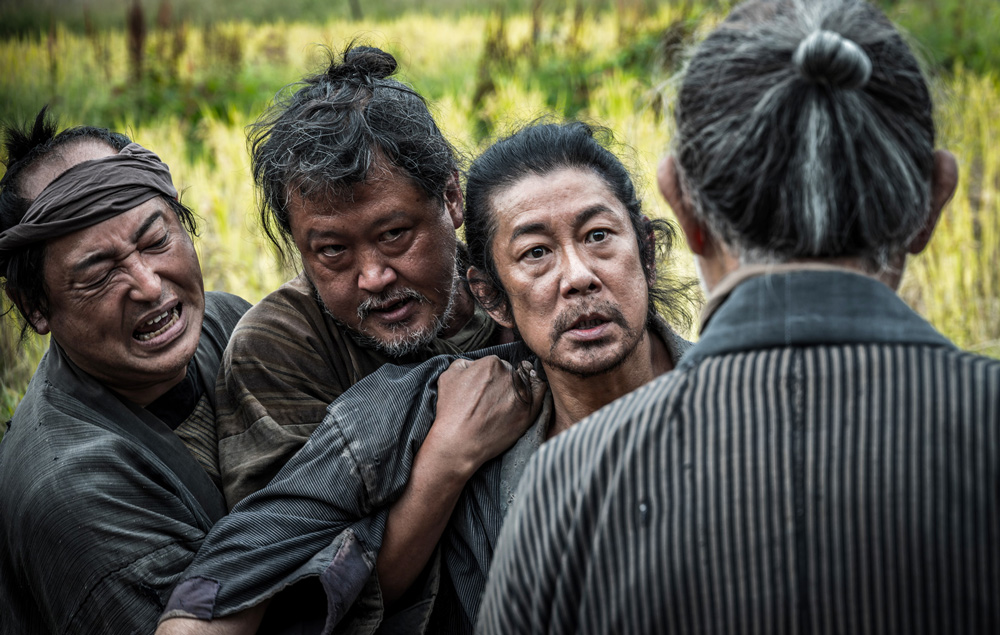!["Yamajo" Director Takeshi Fukunaga Humans are complex and multifaceted [Director's Interview Vol.328]](https://cinemore.jp/images/6d4131d07040f02a5ff1b60c4b757d0b0ef8c9295ca02745be6aa772d8401033.jpg)
"Yamajo" Director Takeshi Fukunaga Humans are complex and multifaceted [Director's Interview Vol.328]
The international co-production of ``Yama Onna'' is directed and written by Takeshi Fukunaga, who has focused on ethnic groups and roots. His first feature film, `` The White Blood of Liberia '' (2015), was screened in the Panorama section of the 65th Berlin International Film Festival, and his second feature, `` Ainumoshiㇼ '' (20), was screened at the 19th Tribeca Film Festival. He received a special award from a member of the public, and is strengthening his presence on the international stage. Fukunaga studied film in New York and has pursued a unique world of work through a global production system, but in recent years he has also been active as a director for the American drama series ``SHŌGUN'' and ``TOKYO VICE S2.'' In this work, Fukunaga depicts Tohoku in the late 18th century. What did Fukunaga put into this work, which was inspired by Kunio Yanagida's " The Tales of Tono "? I spoke to him.
“Yamaonna” synopsis
Late 18th century, Tohoku. In a village suffering from food shortages due to cold weather, Rin (Yamada Anna) lives a strong life despite being looked down upon by the people. Her soul's salvation was Mt. Hayachine, where the goddess of thieves is said to dwell. One day, Rin's father Ihei (Masatoshi Nagase), unable to endure hunger, commits theft. In order to protect her home, Rin protects her father from being criticized by the villagers and leaves the village on her own. Rin crosses the shrine of the mountain god, who is said to never be allowed to cross, and heads deep into the mountain. As Rin runs away from the wolves, the person who appears in front of her is the legendary and feared "Mountain Man" (Mirai Moriyama).
Index
Humans are complex and multifaceted
Q: You said that this work was inspired by " The Tales of Tono ." What was it about it that drew you to it?
Fukunaga: `` Tono Monogatari '' may bring to mind easy-to-understand monsters such as kappa and zashiki warashi, but in reality, it is not a fantasy story, but rather that something mysterious exists in nature that is beyond human comprehension. This is depicted as reality. In the past, people lived in awe of nature, and the humans portrayed there were shallow, ridiculous, and weak, and always lived in a human-like manner. When I read it again now, something like the origins of the Japanese people emerges. I'm really drawn to something mysterious like what's depicted there, and I want to know more about it. And I want to express this through images rather than words. That's what I feel.

“Yamaonna” ©YAMAONNA FILM COMMITTEE
Q: I was impressed that the villagers who ostracized Rin and her family were not stereotypical villains.
Fukunaga: Human beings are multifaceted and cannot be categorized as black and white, and intentionally portraying an easy-to-understand bad guy and showing it to an unspecified number of people can have a negative impact. American film critic Roger Ebert once said, ``Movies are a medium that advances civilization by promoting understanding of others,'' and left behind a famous quote: ``(Movies) are machines that generate empathy.'' . Drawing characters that are simple and unrealistic is like rejecting Ebert's ideas and reinforcing prejudice. Even if we do something bad or wrong, each has its own reasons and conflicts. I am always conscious of drawing in such a multifaceted way.
Q: Mr. Nagase's character "Ihei" also seems like a terrible parent, but he doesn't feel like he's inherently evil.
Fukunaga: Mr. Nagase already understood that when he read the script. That was a big part of what I asked Nagase-san to do. Regarding "Ihei", there was a common understanding that he should be made into a human being rather than just a villain. It wouldn't be surprising if Ihei in the movie was treated with nothing but disgust, but that didn't happen, thanks to Nagase-san's ability to embody the complexity of human beings.
“Hope” entrusted to Anna Yamada

